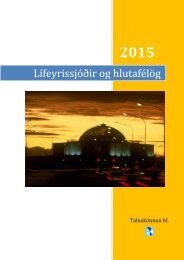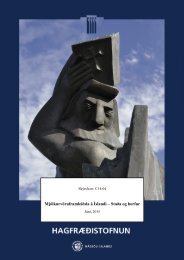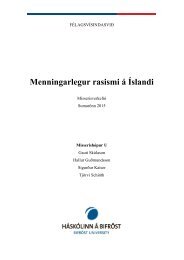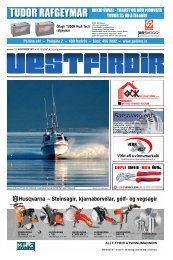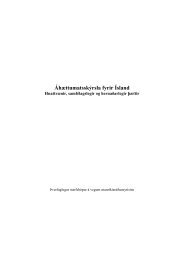Create successful ePaper yourself
Turn your PDF publications into a flip-book with our unique Google optimized e-Paper software.
WORLD REPORT 2016<br />
HUMAN RIGHTS WATCH<br />
At least three men were victims of enforced disappearances, including two members<br />
of Lakes state parliament who were forcibly disappeared for many months<br />
after being detained in police custody before eventually being released in August<br />
2015.<br />
Freedom of Expression and Association<br />
The NSS continued to intimidate and detain journalists, further tightening an already<br />
restrictive media environment. In early August 2015, NSS officers shut<br />
down two newspapers, Al Rai and The Citizen, and an organization producing<br />
radio programs. The print run of another newspaper, the Daily Nation, was<br />
seized in December 2014 and shut down in January 2015. President Kiir and Information<br />
Minister Michael Makuei threatened journalists publicly, and the minister<br />
threatened to shut down the UN radio Miraya FM.<br />
In August 2014, journalist Peter Julius Moi was assassinated days after President<br />
Kiir publicly threatened journalists. Another journalist, Clement Lochio, last seen<br />
in military detention, has been forcibly disappeared. Two more journalists were<br />
arrested by MI officers and held in military detention in 2015, one for a month<br />
because he interviewed, on the government South Sudan TV, a politician at odds<br />
with with the army’s chief of staff.<br />
In February, NSS officials shut down the elections for the South Sudan Bar Association<br />
in Wau and Juba, allegedly because the organization had not received advance<br />
permission from the NSS. A journalist who took photographs at the Juba<br />
venue was arrested and detained for about 20 hours in a NSS detention site.<br />
Legislative Developments<br />
NSS officers were given sweeping powers of arrest, search and seizure, and detention<br />
without any clear judicial oversight in a National Security Service Act<br />
passed by South Sudan’s parliament in mid-2014, amid much controversy and<br />
procedural confusion.<br />
President Kiir said he would not sign the bill, but in February 2015 the justice<br />
minister declared that the bill had become law because the president had not returned<br />
it to parliament or provided reasons for withholding his signature for<br />
more than 30 days.<br />
In 2015, the government of South Sudan acceded to the Convention Against Torture<br />
and its Optional Protocol, the Convention on the Elimination on all Forms of<br />
Discrimination Against Women and its Optional Protocol, and the Convention on<br />
the Rights of the Child (CRC).<br />
In 2013, South Sudan’s parliament passed a bill to ratify both Optional Protocols<br />
to the CRC on the involvement of children in armed conflict and on the sale of<br />
children, child prostitution, and child pornography. However, neither instrument<br />
had been deposited with the UN at time of writing.<br />
South Sudan has neither signed nor ratified the African Charter on Human and<br />
Peoples’ Rights or the African Charter on the Rights and Welfare of the Child.<br />
Accountability and Justice<br />
The government and opposition leadership have not made any serious effort to<br />
hold abusive forces to account. Machar promised to investigate a massacre in<br />
Bentiu town, Unity state, by his rebel forces in April 2014, but no findings had<br />
been made public at time of writing. Two government reports, one by the police<br />
and one by the army, about the involvement of security forces in widespread<br />
killings of Nuer men in Juba in December 2013 had also not been made public.<br />
President Kiir also initiated a national investigation into human rights abuses in<br />
early 2014; that report had also not been made public at time of writing.<br />
In December 2013, the African Union (AU) authorized a commission of inquiry to<br />
document abuses and offer recommendations on justice and reconciliation. The<br />
report, made public in October 2015, highlighted the ethnic nature of abuse in<br />
the conflict, which it said included war crimes and possible crimes against humanity.<br />
The August 2015 peace deal promises a hybrid court to be established by the AU<br />
Commission to investigate and prosecute international crimes committed in the<br />
conflict. Details about the court, including where it will be located and how it will<br />
be set up, have yet to be decided. The peace deal also mandates a Commission<br />
for Truth, Reconciliation and Healing and a Compensation and Reparation Authority.<br />
524<br />
525





